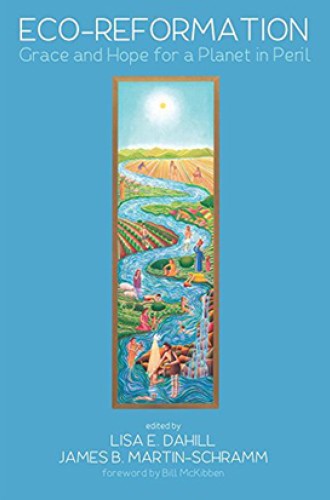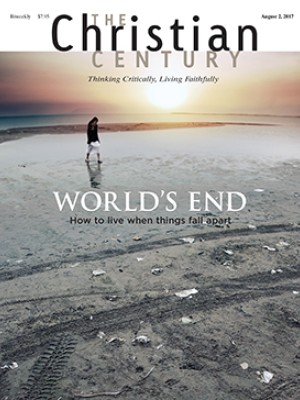Faith for the earth's survival
Environmental sustainability requires a Reformation-scale paradigm shift.
This book’s theological resources for the critical task of healing the planet engage a wide range of Christian thought. Every author in the collection either implicitly or explicitly claims that the divisions between science and religion are not only unhelpful but downright harmful when it comes to tackling climate change, pollution, eco-racism, and species extinction.
Ernest L. Simmons, for example, insists that “all education is environmental education.” A professor at a Lutheran college, Simmons calls for schools in the liberal arts tradition to form critical, courageous citizens for global and local ecological leadership that engages the scientific and social complexities of our time. Similarly, Lisa E. Dahill describes a process of “rewilding” Christian spirituality that involves healing the rift between religion and science so that each may be in conversation with, and enhanced by, the other.
Read our latest issue or browse back issues.
All the authors use the paradigm shift of the 16th-century Protestant Reformation to frame the shift that is needed today for an environmentally sustainable future of global systems. Bill McKibben, in the foreword, insists on the need to “switch from [a] world of centralized energy to a distributed model that depends on local sun and wind. It’s not entirely different from the move from a central church to the localized autonomy of Protestantism.” To this end, Norman C. Habel’s contribution is a new set of critiques (á la Martin Luther) of contemporary society and its power structures: “Ninety-Five Eco-Theses.”
The essays also reflect the ongoing reconciliation process between Lutherans and Catholics. The two former ecclesiastical enemies have already made great strides toward greater visible unity through the 2015 joint document titled “Declaration on the Way: Church, Ministry and Eucharist.” Eco-Reformation could serve as further stimulus for finding common ground—literally the ground of this planet.
Of the essays in this volume, six of them—fully one-third—contain references to Pope Francis’s encyclical Laudato sí, the papal letter concerning ecology and caring for God’s creation. H. Paul Santmire, in his essay “The Two Voices of Nature,” celebrates the fact that Lutherans today can “work in a new ecumenical partnership with the Church of Rome, in a way that would have probably shocked Luther himself.” This is not to say that the authors in this volume take an uncritical stance in their eco-ecumenical engagement, however. Terence E. Fretheim notes, for example, that the encyclical relies on traditional images of God, which are neither true to the biblical text nor helpful in deconstructing paradigms of power and control.
In fact, none of the authors shy away from critiquing aspects of religion that have contributed to the ecological crisis. Several of them name anthropocentric theology as the source of a worldview that privileges human progress over environmental sustainability. Some shine a light on the ways in which American culture, neoliberal capitalism, and the abuses of rights-depriving governments have led to our current state. James B. Martin-Schramm’s provocative essay engages Lutheran theologian Dietrich Bonhoeffer, arguing that Bonhoeffer’s call for direct political action by the church against the Nazi state is exactly what is necessary for combatting the forces that drive climate change today.
The most powerful essay in the volume, by Victor Thasiah, describes the role of the Lutheran Church in Rwanda in helping to restore democracy through a reforestation program after the genocide of the 1990s. Trees are a recurring theme in many of the essays in the collection—from the tree of the crucifixion to the Tree of Life in Revelation to Wangari Maathai planting trees in Africa where blood and destruction had reigned.
Eco-Reformation contains leaves for the “healing of the nations” (Rev. 22:2). By “greening” our worship and preaching, liberating our patriarchal theology, and empowering our faith to action on behalf of the planet and those who are most vulnerable, the essays are a kind of eco-theological antibody within a system that is suffering a sickness unto death.






